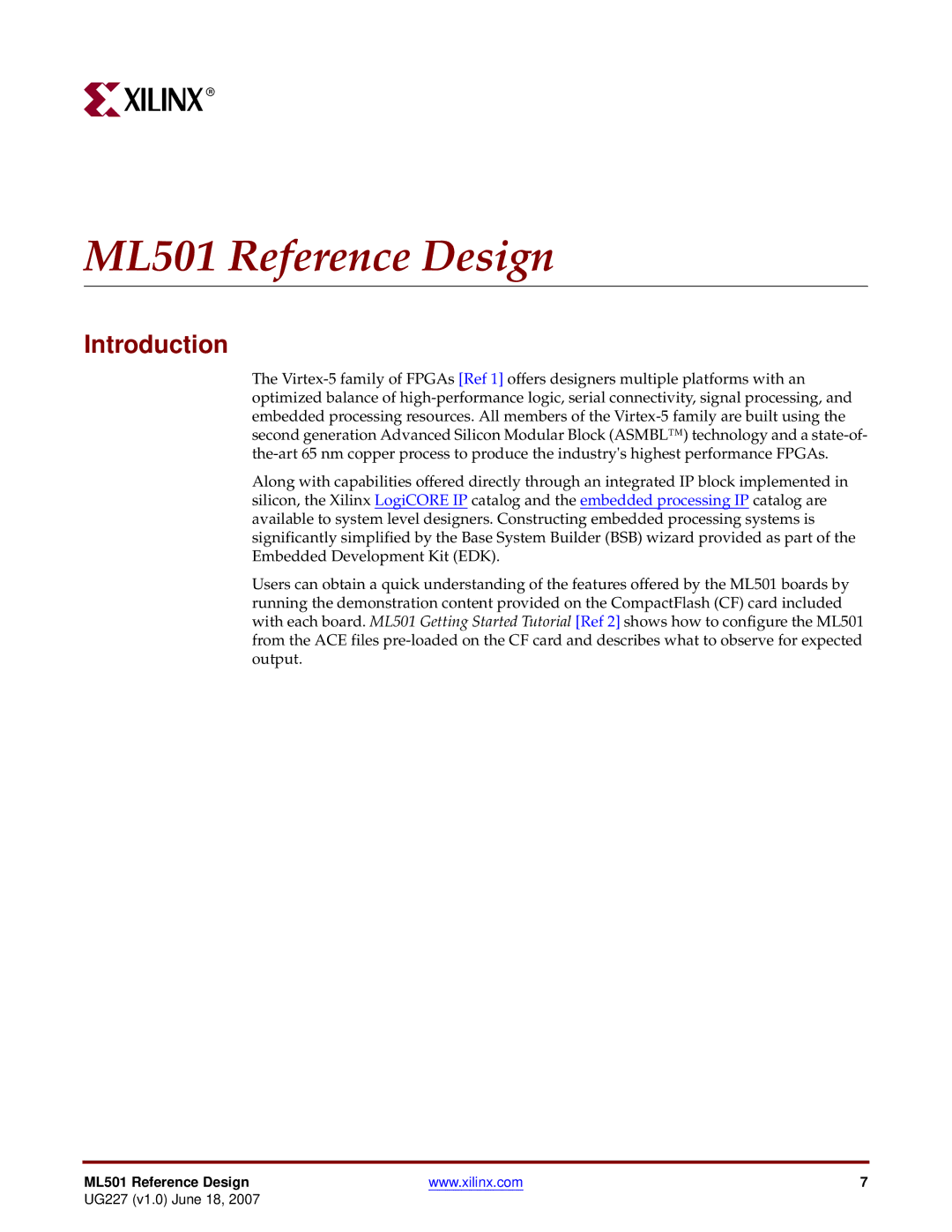ML501 specifications
The Xilinx ML501 Evaluation Platform is a highly versatile and powerful development board that targets a variety of applications in the fields of digital signal processing, communications, and embedded systems. Designed to simplify the process of designing and evaluating high-performance systems, the ML501 harnesses the capabilities of the Xilinx Virtex-5 FPGA, known for its speed, flexibility, and capability to integrate complex functions into a single chip.At the heart of the ML501 is the Virtex-5 FPGA, which offers an impressive array of resources, including a large number of logic cells, embedded multipliers, and DSP slices, making it ideal for tasks that require significant processing power and parallelism. The platform supports a variety of I/O interfaces, such as LVDS, GPIO, and USB, enabling seamless connection to other devices and peripherals. This flexibility allows developers to implement diverse applications ranging from high-bandwidth data processing to real-time control systems.
The board features an embedded PowerPC 440 processor, which allows for the execution of complex software algorithms alongside the hardware processing capabilities of the FPGA. This combination of hardware and software processing empowers developers to create systems that can simultaneously handle intensive computational tasks while maintaining responsiveness to external events.
One of the standout features of the ML501 is its support for the Xilinx EDK (Embedded Development Kit) and Xilinx SDK (Software Development Kit), providing developers with all the necessary tools to integrate hardware and software seamlessly. The platform also supports various communication interfaces such as Ethernet and serial connections, making it easy to transfer data and interface with other systems.
In terms of memory, the ML501 includes ample resources such as DDR2 SDRAM, which facilitates high-speed data processing and storage solutions. Additionally, the board provides a rich set of expansion connectors, enabling users to interface with custom hardware and add more functionalities as needed.
The ML501 is also designed with user-friendly features, including various LEDs and buttons that aid in debugging and monitoring the system's state. With extensive documentation and reference designs provided by Xilinx, developers can quickly get started and experiment with their own applications.
Overall, the Xilinx ML501 Evaluation Platform stands out as a powerful tool for engineers and developers looking to leverage the capabilities of FPGAs in developing advanced embedded systems. Its combination of robust processing power, extensibility, and support for both hardware and software development makes it a valuable asset in the realm of modern digital design.

